Life in limbo: Venezuela today
In an attempt to find a balance between Hugo Chavez’ legacy of Bolivarian socialism and the harsh reality of its current economic situation, Venezuela grapples with its greatest identity crisis of the past few decades.

In an attempt to find a balance between Hugo Chavez’ legacy of Bolivarian socialism and the harsh reality of its current economic situation, Venezuela grapples with its greatest identity crisis of the past few decades.

by Jacob Jelin Schwarz, MBA ’17, EMI Fellow
In an attempt to find a balance between Hugo Chavez’ legacy of Bolivarian socialism and the harsh reality of its current economic situation, Venezuela grapples with its greatest identity crisis of the past few decades. Inflation has ballooned by over 200%[1][2] in the past twelve months. Average citizens struggle to afford basic necessities. The economy shrank by 7% in 2015. And while the Venezuelan BolÍvar officially trades at 6.3 to 1 US Dollar, the black market exchange rate – or what people actually pay for goods – is closer to 100 times that amount.
So how did Venezuela get here?
The country enjoyed a 15-year period of robust growth under the leadership of the charismatic and iconic socialist leader Hugo Chavez. His bullish stance on oil production reaped major benefits as the price of crude skyrocketed during the late 2000s, and he put much of the generated wealth toward social programs for the country’s poor.
His 2013 death, however, created a power vacuum and led the country to a historic election between Nicolas Maduro, Chavez’ handpicked successor, and the opposition candidate, Henrique Capriles.
Maduro won by a small margin, which he claimed signaled a popular desire to continue the economic and social policies of Chavez’ Bolivarian Revolution. Capriles, who campaigned for a democratic Venezuela, argued a margin of error, claiming electoral fraud and his own rightful victory. Maduro was sworn in as Venezuela’s president in April 2013.
The current situation
The price of a barrel of oil has fallen from a peak of $145[3] in 2008 to less than $30 today. With 95% of Venezuela’s trade and revenue dependent on oil, Maduro’s continuation of old policies may have led the country to its economic turmoil. While Hugo Chavez had the benefit of high oil prices to back up his bombast, Maduro showed up at the party too late, and no amount of empty rhetoric will fix the country’s shortage of basic goods.
Quality of life for the average Venezuelan has fallen immensely, with people waiting in line for hours to shop at grocery stores with empty shelves and prohibitively high prices.
The difficulties do not stop there. Credit ratings agencies Standard and Poor’s and Moody’s have both downgraded Venezuela’s rating multiple times in the past year, citing the plummeting price of oil and the government’s failure to adequately address dire economic issues like hyper-inflation and international debt obligations. S&P now rates Venezuela with a “speculative” CCC rating[4].
President Maduro has ignored warning signs of a collapsing economy, instead blaming the United States and his own domestic political opposition for the current situation. Rising discontent with the Maduro presidency has led to mass demonstrations throughout the country. The national consensus has shifted, and people want change.
Change in the air
A parliamentary election last month reflected the first measurable shift in public opinion. With an unprecedented voter turnout of 74%[5], the opposition party won a supermajority of 112 seats, up from 67.
The people have spoken.
A parliamentary supermajority has the autonomy to name new judges to the Supreme Court. New judges could move to impeach President Maduro, which is exactly what the opposition party has vowed to do. More specifically, they outlined a plan to oust Maduro legally under the Constitution within six months.
If the story stopped there, one might predict a slow, steady recovery as a more democratic Venezuela digs itself out its hole. But daily developments make the future impossible to predict.
After the elections in December, Maduro and his supporters challenged the legitimacy of the voting process, attempting to bar three of the newly elected members of parliament from taking their seats – enough to block a supermajority.
Believing in its entitlement to those parliamentary seats, the opposition party planned to fight for its supermajority. Such was the situation at the start of 2016 – a tense stalemate with both parties firmly standing their ground and truly believing their case.
Political strife is rarely conducive to economic growth, and in this case, vast resources go toward the interparty struggle rather than toward recovery programs. Combining the political situation with Venezuela’s increasing international debt obligations, the plummeting price of oil, and hyper-inflation, the future does not look good.
If the opposition supermajority would be allowed to take all of its parliamentary seats, investing in Venezuelan bonds could reap benefits a few years down the road. If the political situation continues to devolve, however, an imminent default on foreign debt is almost certain.
The latest
In a major turn of events, the opposition party has decided to relinquish three seats of parliament, as requested by the Maduro government. It will assume a simple majority rather than a supermajority.
This will stifle the party’s plan to oust President Maduro, but it allows the parliament to function in relative peace. The opposition party can still push through wide-reaching overhauls to economic and social policy, but this simple majority limits the scope of its goals in the short term.
There is no telling what the political landscape will look like in one month, let alone one year. The bitterly-divided parliament, while dominated by the opposition party, will have difficulty recovering from the tensions surrounding December’s election. Any legislation proposed by one party will surely be met with intense scrutiny and skepticism by the other.
Looking forward
Innovation and creative destruction are the building blocks of sustainable growth. The private sector must feel comfortable to take risks, knowing if a business succeeds, its owner will reap the benefits. In Venezuela entrepreneurs barely exist, as they fear the government will expropriate any successful ventures.
Pre-existing, tax-paying businesses fear government intervention in other ways as well. Over the past few years, the government has set fixed prices on basic goods such as milk and soap, forcing vendors and importers to sell their inventory at a loss. Once current inventory is sold, businesses do not import more fixed-price goods, as they want to avoid losing money on the final sale. Hence the shortage of basic goods.
Instead of setting prices, the government must promote a free market economy. By allowing the market to determine the price of goods, average people will start to buy and sell more products. The more money that changes hands, the more productive the economy will be.
Federal transparency has long been a problem for Venezuela. Even when flush with cash, the public was not privy to the spending habits of its leaders – a surefire formula to breeding corruption. The new parliament must establish transparency and accountability in its spending habits if it hopes to build sustainable growth. Only by publicizing the allocation of government funds can officials resist nefarious temptations.
As the situation in Venezuela became more difficult, the Maduro government stopped publishing economic statistics. For transparency, this must be reversed immediately. If and when they are published, the numbers will likely be more severe than the international community had anticipated. However, only by recognizing reality can the country begin to march in the right direction.
Despite the hope that the new parliamentary majority will engender major change, these issues existed even before Chavez took leadership. A parliament that supports democracy is a step in the right direction, but the underlying causes of this crisis – corruption and lack of transparency – must be recognized and dealt with for long term growth.
Venezuela stands at a crossroads. If it continues its downward spiral, no one can predict how high inflation will go, or how low quality of life will drop for the average citizen. It must start at square one, find common goals among all political parties, and begin to repair the country starting with the fundamental assumptions underlying its societal system.
[1] http://www.bloomberg.com/news/articles/2015-09-29/venezuela-s-bolivar-falls-past-800-per-dollar-on-black-market
[2] This number is an approximation, as the country has stopped publishing economic statistics.
[3] http://www.oil-price.net/
[4] http://www.standardandpoors.com/en_US/web/guest/ratings/entity/-/org-details/sectorCode/SOV/entityId/102490
[5] http://www.bbc.com/news/world-latin-america-35043945
